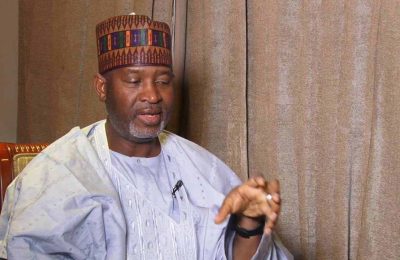

Sample 1: “According to the new recommendations by the TSC, all the students who wishes to join teaching career will be required to pursue a degree of Bachelor of Arts or Bachelor of Science.” (End of the road for Education graduates…Daily Nation online, 17 July, 2021)
Let’s pay attention to the verb wishes which occurs in the following structure: “all the students who wishes.” That verb (wishes) is in its wrong form. The nominal phrase it is supposed to be in concord with is plural: “all the students.” The verb ought to be of the form: wish. We should say: “The boy wishes…” but “The boys wish…”; “The boy sings…” but “The boys sing…” “The girl writes…” but “The girls write…” The presence or absence of the final s in the verb is of great grammatical significance… The point being made is that the writer has committed a major blunder, a blunder that is a common feature of the written prose of many, including highly educated, Nigerians.
The confusion is identical to that which blurs the distinction between the forms have and has. This problem has been addressed repeatedly in this place, but given the fact that it has become a perennial encounter, we shall not shy away from addressing it no matter how often duty imposes it on us. The job is made lighter by the availability of materials from sundry previous discussions.

Consider the following sentences:
1) I go to school every day. 2) We go to school every day. 3) They go to school every day. 4) You go to school every day. 5) He/She goes to school every day.

In each of those five sentences, the verb to go is in its present simple form. There is a correlation between the form of the subject and the form of the verb. In the first sentence, the subject is in its first person singular form. The assumption here is that there is a speaker who uses the pronoun I. The speaker is regarded as the first person. Since the speaker is only one person, the pronoun I is said to be a singular one. A first person singular pronoun I takes the form go when the tense is present simple.

The subject in sentence (2) is a first person plural pronoun, we. Since it is assumed that two or more persons are speaking, we say that the pronoun is in the plural form. As it is with the pronoun I, the verb-form that goes with this pronoun is go when the verb is in its everyday form.
In sentence (3), the pronoun they, which is the subject, is in the plural form. Besides, it is the third person form. What do we mean by the third person? A first person—say I—speaks to a person directly about another person. That other person is a third person. In our case, the third person is plural—they. The verb-form that goes with the third person plural subject is go.
The subject of sentence (4) is you, a word that can either be singular or plural. In English, it is only the context that shows whether the pronoun you is intended as singular or plural as the following sentences illustrate: (6)(a) You are a fool. (6)(b) You are fools. In those two sentences, it is the complement that indicates the number. In (a), you is singular; in (b), it is plural.
Now we come back to sentence (4). Whenever the pronoun you occurs, whether as singular or plural, the verb-form it takes is go. You is a second person. A first person–I—speaks to a second person—you—about a third person.
Sentence (5) has he (or she) as its subject. This form is a singular one and it is a third person. A first person—I—speaks to a second person—you—about a third person—he. The third person singular number– represented as he—invariably takes the verb-form goes. Of all the persons and numbers we have considered so far, it is only the third person singular number—he—that takes the verb-form that ends in s or es as the case may be. All other persons and numbers take the verb go—without the s or es. This distinction is very crucial and a failure to understand it has resulted in many users writing ungrammatical sentences. The distinction is a very clear one and you should make effort to grasp this elementary detail before you go on.
The other point we need to make is that the verb go has been used only as an illustration to avoid confusion. Any other verb in English behaves in exactly the same way as go, relative to the persons and numbers discussed so far.
The following sentences illustrate the point: 7) He speaks good English. 8) He writes a lot. 9) She loves the man. 10) He deceives most people. 11) It wags its tail. 12) He drives dangerously. 13) She possesses a balanced mind. 14) She sings beautifully. 15) She works round the clock. 16) It surprises me—this sudden change of mind. 17) He comes from a wealthy family.
Unlike the third person singular number (he, she, it), all other persons and numbers take the form of the verb without the s or es: 18) They speak good English. 19) We love each other. 20) You write a lot. 21) I work round the clock. 22) They possess balanced minds. 23) You drive dangerously. 24) We sing beautifully. 25) They surprise us. 26) You come from a wealthy family. 27) They deceive their friends. 28) They wag their tails.
Before we make the next point about the subjects of these constructions and their relationship to their verbs, we want to introduce another verb-form, have. For the purpose of our discussion, we recognize three forms of the verb have. These are: have, has, and had. For the moment, we are interested in the distinction between have and has: 29) I have some books. 30) We have some books. 31) They have some books. 32) You have some books. 33) He has some books.
From sentences (29)-(33), we can see that all the persons and numbers except the third person singular number (he) take have. The third person singular takes has. It is now obvious that the form goes and similar forms such as: speaks, reads, writes, etc are related in concord to the third person singular subjects. Notice that in sentences (29)-(33), the verb-forms have and has have been used as main verbs and not as auxiliaries. When they are used as auxiliaries in perfect tenses, they behave in exactly the same way in relation to the persons and numbers of the subjects.
Consider the following sentences: 34) I have bought some books. 35) We have bought some books. 36) They have bought some books. 37) You have bought some books. 38) He has bought some books.
Again, notice that has is used only in sentence (38) in which the subject is a third person singular pronoun. It is also important to note that the distinction we have made between have and has disappears in the past form. The past form of both have and has is had. Similarly, the distinction between speak and speaks, write and writes, sing and sings, etc disappears in the past form.
For example, the past form of both go and goes is went; of both write and writes is wrote; of both sing and sings is sang.
Compare the following sentences: 39 (a) They had bought some books. (b) He had bought some books. 40 (a) We sang beautifully. (b) She sang beautifully. 41 (a) I worked round the clock. (b) He worked round the clock. 42 (a) You had some books. (b) She had some books.
The pairs of sentences in (39)-(42) demonstrate that the distinctions we have pointed out between the verb forms that go with the third person singular subjects and all others do not apply in the past form. The major point we have noted is the distinction between such forms as have and has; go and goes; write and writes; speak and speaks; work and works. Can you relate those verb-forms to their corresponding subject-forms?
Next, we draw attention to the fact that the pronouns we have used as illustrations can be replaced by nouns or noun phrases: 43) Olu goes to school every day. 44) Olu and Ayo go to school every day. 5) My friend and I go to school every day.
Sentence (43) has a singular subject (Olu) and therefore attracts the form of the verb with es. The word Olu can be replaced with the pronoun he—which we have described as the third person singular number. Each of the other two sentences has a plural subject and therefore takes the form of the verb without es.
We can use the verb have with each of the subjects in those three sentences: 46) Olu has a book. 47) Olu and Ayo have two books. 48) My friend and I have two books.
ALSO READ FROM NIGERIAN TRIBUNE








